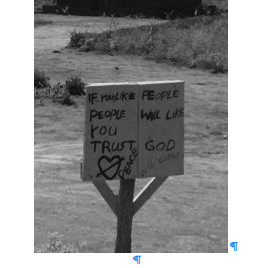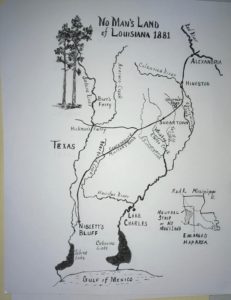

Know Those Who Serve You
I wrote this story for my Grandsons. I believe you’ll enjoy it, too.
“Do unto others as you’d have them do unto you.”
-Jesus in Luke 6:31 ESV
“You can tell a great deal about a man from how he treats those who serve him.”
His name was Raymond, and we met when we were eighteen.
It was unlikely we’d cross paths, much less become friends. Raymond was an urban black man from Pineville, and I was fresh from the Pineywoods of Dry Creek.
He was the custodian on my floor of the Men’s Dorm at Louisiana College.
I was a freshman and Raymond had just been hired.
I was from a blue-collar background and had a natural affinity with the working man. I still do.
Raymond was definitely blue-collar, as evidenced by the type of work shirt he wore as he pushed his dust mop up and down the floors at Tudor Hall.
I’d just spent the previous summer before college on my knees among a gang of convicts, picking weeds from pine seedlings.
I’m not making it up.
Whenever I thought about quitting college that first year, I thought of the tree farm and quickly caught
my second breath.
My mother brought me up to be friendly, so I introduced myself to Raymond. He smiled shyly as he leaned on his mop handle.
I’d spent my teen years working at a church camp. Those summers of cleaning, trash duty, and serving had taught me that all work has dignity when done well.
Raymond and I became casual friends as we crossed paths daily. It happened because I learned his name.
“Good morning, Raymond.”
He’d return my greeting with a smile and “Good morning.”
Our friendship continued for my extended five-year college stay, even as Raymond moved up in his department. His success didn’t surprise me. He was a conscientious worker who got along well with others.
# # #
Thirty years later, I returned to Louisiana College as a school trustee. One day, as I walked across the campus, I encountered Raymond.
Like me, he’d aged, his hair and beard now peppered with gray.
We greeted each other and laughed at how young we were when we first met.
Raymond was now the head of maintenance for the College, which didn’t surprise me. He was a man of character and class who did his job well.
# # #
During those college years, I made it my goal to learn the names of every custodian, cafeteria server, and maintenance worker on campus. It’s amazing how many friends you can make if you take the time to learn someone’s name.
As I once read, “The greatest sound in the world is someone else saying your name.”
# # #
In 2014, in the midst of a terrible civil war in South Sudan, I saw a hand-written sign in a Ugandan refugee camp:
“If you like people, people will like you.”
It left such an impression on me due to its placement amid chaos and hopelessness.
If you like people, people will like you.


It’s true. When we take time to get to know people, good things happen.
It goes along with Jesus’s most famous words, often known as The Golden Rule:
“Do unto others as you’d have them do unto you.”
When we acknowledge those who serve us, we are helping fulfill that verse.
Everyone wants to be noticed and appreciated. As I learned during my teen year’s menial work, it’s amazing how people treat you as if you don’t exist while doing certain jobs.
I vowed then that no one would say that about me. I would never break the Waiter Rule.
What is the Waiter Rule?
Employers will take a prospective employee to a meal at a nice restaurant and carefully observe how the potential hire treats the wait staff. This can be the determining factor in hiring and tells a lot about the person.
How we treat someone who cannot immediately do something for us says much about who we are.
# # #
I wrote this for my Grandsons.
This was my challenge to them as they started a new school year:
“Noah, Jack, Jude, and Luke: I want to challenge you to know the names of every service worker at your school. Greet them with the respect their age and service deserves.
“You can do the same thing at our church. I’ve noticed how the custodial staff moves into the auditorium as soon after the last amen. Pick up any paper around you, take it to the receptacle, and introduce yourself as you pass the worker. Get to know their names and write them down so you remember them next week.
“It’s just good manners, and it goes hand-in-glove with Jesus’ teaching of ‘Doing unto others . . .’
“You should never be too big or busy to be kind to those who serve you. Respect them and the essential service they perform. Take time to learn their names. Look them in the eye. Let them know you see them. Shake their hand or nod at them.
“It’s the ‘Pineywoods Way.’ Sadly, the four of you will probably never live in Dry Creek, but remember that Dry Creek pine sap runs deeply in your veins regardless of where you wander.
“And remember it’s part of our Clan to know those who serve us.”


 Creekbank Stories Curt Iles, Storyteller
Creekbank Stories Curt Iles, Storyteller
